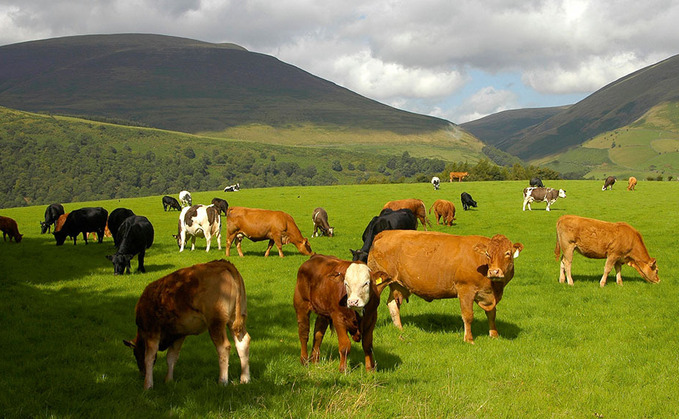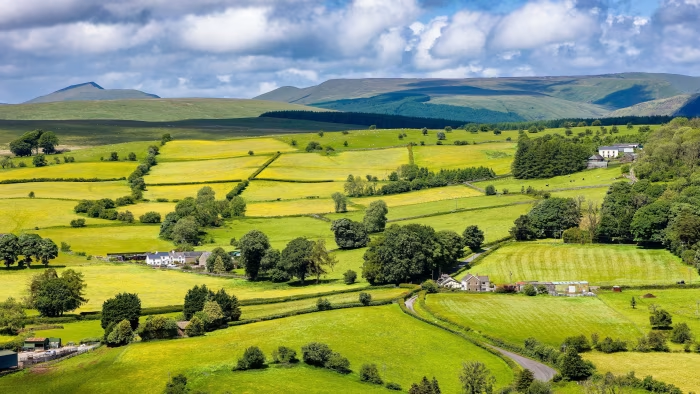The Labour government’s unveiling of a National Food Strategy marks a pivotal moment for the UK’s food supply chain, presenting an opportunity to address deep-seated challenges while fostering sustainable growth. With calls for a unified, evidence-based approach, this new initiative seeks to balance the imperatives of fairness for farm businesses, healthier national diets, and the economic viability of the food sector.
The strategy’s emphasis on equitable supply chains underscores the need to protect the financial health of farm businesses who form the bedrock of the UK’s food system. By alleviating the economic pressures they face, particularly from dominant supermarket practices, the sector can ensure its long-term resilience and productivity. For businesses, a fairer supply chain isn’t just a moral imperative; it enhances sustainability, mitigates risks, and promotes collaboration across the industry.
As the strategy unfolds, the promise of a coordinated approach—integrating government, academia, and industry—raises hopes of transformative progress. However, the complexity of the task demands clear objectives, robust metrics, and alignment with consumer needs. Properly executed, this strategy could deliver a win-win: ensuring food security, combating obesity and spurring economic growth, while maintaining a strong, sustainable foundation for British agriculture. The time for action is now, with the rewards of fairness and foresight evident for all stakeholders.
Rural Policy Group support for the National Food Strategy
The National Food Strategy is welcomed by Rural Policy Group as a much needed stimulus to British food production. Organisations such as RPG and the NFU have been warning governments that food security is a critical issue and immediate action is needed.
RPG and partners including the Institute of Directors and MHA, specialist accountants to the agricultural sector, established the first All-Party Parliamentary Group dedicated to Fair Value in the Food Supply Chain in 2022 with the now Food Security Minister Daniel Zeichner as Chair and wide-reaching support across the political spectrum. The NFS is a clear continuation of the work we started and RPG will be working with parliamentarians to re-form the APPG to support the drafting and implementation of the strategy.

The Grocer reports on the announcement from DEFRA

Reed said: “Our food and farming sectors are the cornerstone of our national identity and economy.
“Today we celebrate the great work that farmers, growers, distributors, and manufacturers across the country that put delicious food on our tables.
“However, unhealthy diets are driving skyrocketing obesity rates, food security is under pressure from climate change, and the way our supply chain works means some farmers are struggling to make a profit.
“Our cross-government food strategy will make sure our food system can continue to feed the nation, realise its potential for economic growth, protect the planet, and nourish individuals, now and in the future.
“We cannot do this alone, which is why I call on the expertise, energy and commitment across the food sector to transform the industry for good.”
Reed told industry leaders and other groups that the “ambitious” new strategy would provide healthier, more easily accessible, building on the government’s existing work to tackle obesity and improve health.
It will also look to maintain food security by “building resilience in the face of climate shocks and geopolitical changes and protect the supply chain which operates so effectively to keep us fed”.
Defra also vowed to drive investment, productivity and innovation to ensure the food and drink sector – the UK’s largest manufacturing sector – could realise its potential for economic growth.
Reed said that while Defra would lead the policy, it would also involve close collaboration with the Department of Health & Social Care and Department for Education. A co-ordinated programme of engagement with the industry and its related organisations to develop the strategy is set to begin in the new year.

Industry sources welcomed the government’s announcement, but warned that the “devil will be in the detail”. There is huge nervousness widespread in the sector over the potential for the strategy to bring with it a raft of regulation, taxes and increased costs.
“We support a comprehensive, long-term food strategy,” said BRC director of food and sustainability Andrew Opie. “It is essential to delivering food security, sustainable food production and improved choices for consumers.
“We need to ensure we learn from previous attempts to deliver one. It has to be credible, engage and work with industry, have both long-term and immediate objectives, join up governments in Whitehall and the UK, but most importantly have the actual consumer, rather than an inaccurate perception of one, at the heart of everything.”
FDF director of industry growth and sustainability Balwinder Dhoot said: “We welcome the government’s plans for a food strategy. We need an integrated approach across government and industry to look at sustainability, health, investment and growth.
“This will support our long-term food security and ensure we are able to continue providing affordable, healthy and safe food for the nation. We look forward to working in partnership with government to develop the strategy.”


Anna Taylor, executive director of The Food Foundation, welcomed the government’s proposals. “Steve Reed has specifically said this strategy needs to guarantee access to affordable, healthy and nutritious food for everyone in our country – and it must,” she said.
“The businesses producing and selling food in the UK should be at the heart of growing our economy, but short-term growth reliant on feeding people junk food, pumping unsustainable greenhouse gas emissions into the atmosphere, and destroying nature is a false economy, as high rates of economic inactivity in the UK and recent poor harvests caused by climate change show.
“The emphasis on fairness through the supply chain; accessibility to healthy affordable food, particularly for children; and building trust and empowering consumers through data and transparency, reflects a hugely positive shift that could reshape the food system so that it works for citizens.
“The decision to set up a new sector delivery board that will include charities and academics alongside the food sector could facilitate this and allow for meaningful change.”
Join Rural Policy Group Today
for more news, networking, advice and advocacy for the agri-food supply chain

